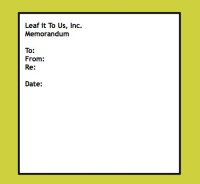WEEK 2: learning our
tech platforms
- You need to make a Google folder of my documents that I will use in the semester: Office Hours in the Sky/Ask Me Anything (OHitS) documents that will be hosted by me on all MWF between 9-11. You can type anonymously and I will answer in real time. The docs will be locked midday but available for you to read. In this way, my class is synchronous but not required AND asynchronous of shared knowledge for you to read as you will.
- Learning a bit of writing composition pedagogy helpers
- Cognitive wedge (one-page Google doc) praxis (TBD Monday and all week)
- Stasis theory overview (2 Google slides)
- Follow-up on audience analysis slides, two of which were discussed in WEEK 1 below.
- Checking out these resources here on Squarespace: set of language helper links, to see the range of digital sources on language choices
Looking ahead? Wednesday and Friday we will prep for the invention phase of memo 1: understanding what rain gardens are and preparing to define and describe. If you want, read ahead for ten minutes a day or so. You can look at the Wikipedia entries or do a google search (think critically about what you find).
TL:DNR? Try this:
- squarespace for weekly, MWF guidance and links to learning content (WEEK with updates)
- OHitS/AMA docs on MWF for you to ask me questions openly (from the discussion I will calibrate what we do next.
- ELMS calendar to be linked to specific tasks later this week
- ELI Review (will will register for this in Week 3).
What we do in these spaceds:
- Squarespace, where I present short, targeted lessons on writing and link to our discussion spot on
- Google Docs, where you interact with me MWF 9-12 and can "see" what is there
- Eli Review, where you interact with each other to write, review, revise --> toward excellent writing (and learning) for three major assignments: Memo 1, Memo 2, Article Review.
Promise to you: I will work hard to curate links to what you need for the day, the week, and the month.
Recall the labor grading approach: I will grade you on three papers, each accompanied by four labor grades for your reading, drafting, commenting, revising, and generally being part of our learning community.
Arrive alive, together.
First assignment: short, definition memo. Here are a few remarks that give you context. Then, move over to the OHitS Google doc (me, hosting between 9-12).
There, I preview the size of the document and the arrangment and size of paragraphs. This will help guide you in your recursive step on what sources you need. Recall this context: Boss says, "I need backgrounder by 11. Driving to Baltimore to meet with Hogan on rain gardens and bioretention."
We will write for Jane Austen Powers at Leaf it to Us. Wh is she?
Answer: SHE IS THE BOSS and your primary audience for the memo.
 Source: Dover Pictoral Archive -- Office Clip Art collection
Source: Dover Pictoral Archive -- Office Clip Art collection
LESSON 1 to review: Topic Sentences, to open each paragraph: A list of qualities for you to strive for
Usually a short direct sentence (think announcement)
- Signals the topic in the paragraph (think preview)
- Hooks the reader by 1) raising a question or 2) provoking thought
- Can be placed anywhere, but early on in the paragraph is the best default strategy for most professional documents; in other words, at the beginning of the paragraph
- Contains an element of transition from the previous paragraph

The memo assignment connects to stasis theory. We will write an in-class set of four short paragraphs that expand the definition stasis, using the cognitive wedge strategy.
- Para 1 opens the 2nd Stasis: Definition (what is a rain garden, briefly, by two functions)
- Para 2, adds detail and places in context: Classifying (what type of technology is this? Hint: green infrastructure, sustainability, low impact development and storm water management)
- Para 3, elaborates further by painting a picture: Describing (Illustrative; give some functional detail on the layers of soil and also look at the plants and mulch at the surface)
- Now enters the evaluation or quality stasis, that you can write as an evalution paragraph (is this technology good or bad? Note, we are making a claim. Claims must be supported with evidence. Use these two sources to support this claim: Low Impact Development Center (founded by Larry Coffman who invented rain gardens) and some of the slides in this presentation by the "grand wizard' of bioretention, Allen Davis, PhD.
Friday, we will work in a new Office Hours in the Sky/AMA doc. There, we will connect stasis theory to your readings about rain gardens/bioremediation/low impact development (a view-only Google doc). See those three words? They are your search engine words to sift through some Google results to get clear on these terms. Note: we need to learn how to use Google well and ethically.
I will place the link for Eli Review in an ELMS email to you. Go to EliReview.com and register. No tasks there yet. However, you can view some short videos to see how this works. I promise, this system is better than using any of the options, including long discussion threads to work with each other reviewing/revising your documents.
Still building the ELMS calendar, which will always link to your tasks in Eli Review.
For the next two weeks, you are reading critically:
- your review article to prep for our late March/early April assignment #3
- Google based reading and my suggested links about rain gardens/bioremediation/low impact development
- and, I assume, tons of reading for your other classes.
Therefore, here are a few links to that will support you in your heavy reading loads
- Policy expert and professor Raul Pachego-Vega's wonderful website about academic reading, writing, presenting (all linked by critical thinking): This link, which includes a template for note taking, is really good
- My reading guide, based on ecologist K.E.'s approach (1-page Google doc/outline)
Meta-analysis terms (concepts that will help you now)
- last mile problem, described here briefly in Business Insider
- rain gardens are a last mile solution
- our mask distribution project to each other also has last-mile qualities
Meta-technique option in modern digital communication:
- do you see in this post and my other teaching materials that I try to help readers move through hypertext with efficiency and support?
- links are curated (type of information, sense of platform, and length of document/hypertext space
- where possible, I help you see ethos (business journal, ecologist, etc.)
- also, I try desperately NOT to send you to pay walled information
- how about you adopt this meta-technique in YOUR writing?
Reader Comments